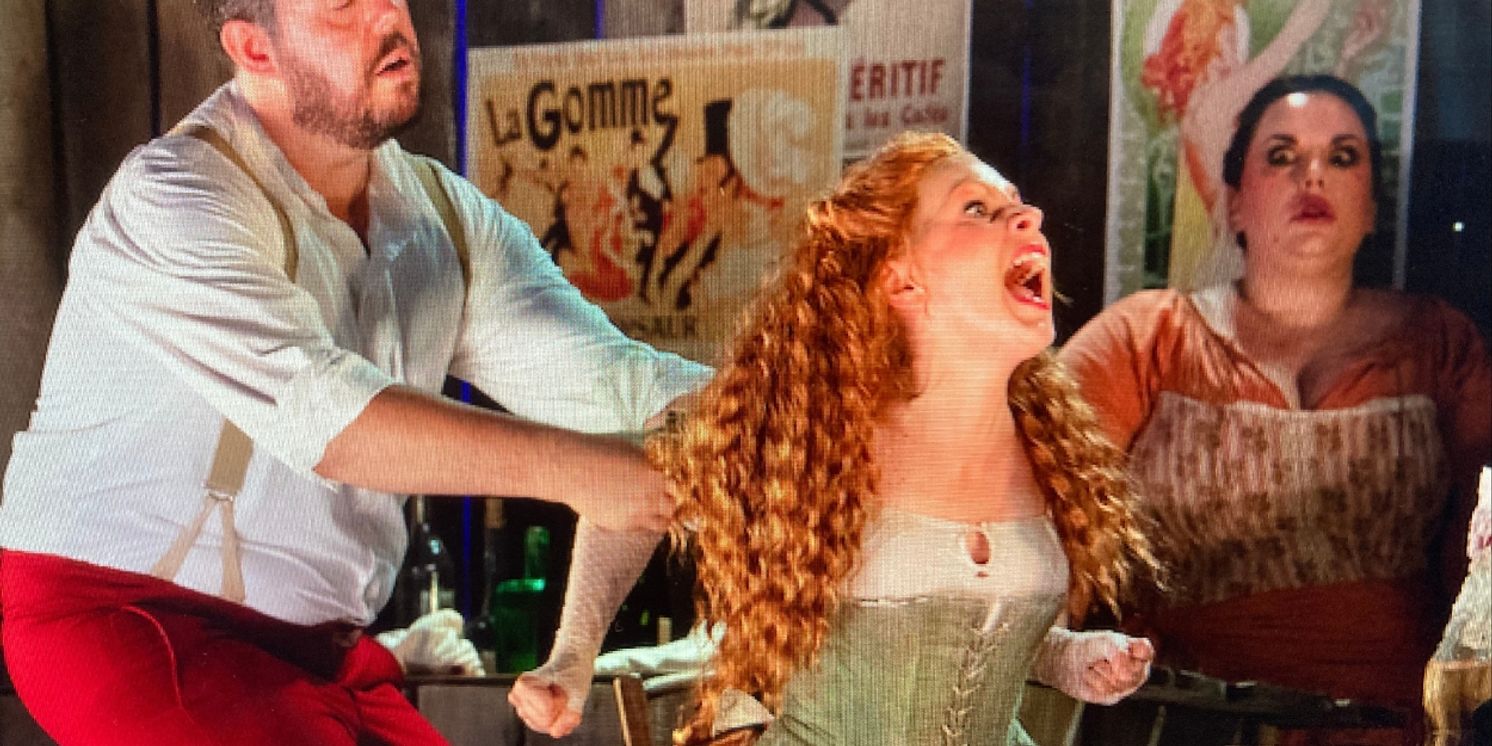Review: MARGOT LA ROUGE/LE VILLI at Opera Holland Park
Short form operas by Puccini and Delius.

![]() You have to applaud Opera Holland Park for not only focusing on money-spinning blockbusters, but for giving rarely performed works an airing. In a double bill of short operas (think bite-sized short story rather than weighty novel), audiences can explore two lesser-known works directed by Martin Lloyd-Evans: Frederick Delius's Margot La Rouge and Giacomo Puccini's Le Villi.
You have to applaud Opera Holland Park for not only focusing on money-spinning blockbusters, but for giving rarely performed works an airing. In a double bill of short operas (think bite-sized short story rather than weighty novel), audiences can explore two lesser-known works directed by Martin Lloyd-Evans: Frederick Delius's Margot La Rouge and Giacomo Puccini's Le Villi.
As well as shared themes of estrangement, reunion and revenge, both operas have rejection in common. Neither won a competition for one-act operas by unpublished composers. Puccini's only opera with a German setting and supernatural touches failed to make the finals on the grounds of an illegible score. And Delius's parable of a chance meeting of two former lovers in Paris that ends in double murder wasn't even shortlisted.
One-size-fits-all for both productions, with a wooden shack set by takis that revolves into a bar, garden, church and graveyard. Costume design (takis again) is reminiscent of Les Miserables, with dusty reds, greens and beiges for the harlots. In contrast, soldiers are decked out in crisp blue and red uniforms.
I'm not wholly enamoured by the contour of the stage - a doughnut shape with the City of London Sinfonia, conducted by Francesco Cilluffo, as the jam filling. The orchestra tends to overpower the singers on occasion and a lot of the action, particularly in the first half of the evening, occurs upstage. Luckily, this is remedied later on when performers come downstage and engage with the audience on a more intimate level.
Don't expect Delius's typical theme of the power of nature in Margot La Rouge, a down-and-dirty piece of realism sung in French with English surtitles. Anne Sophie Duprels plays Margot, a prostitute in a seedy Parisian dive, who reunites with old flame Sergeant Thibault (Samuel Sakker). Paul Carey Jones plays her lover, The Artist (you can tell he's an artist, because he wears a cap over his flowing locks), who gets jealous and kills Thibault. Margot seeks revenge and stabs The Artist (great spurting of blood up the wall at this point).
The three leads do what they can with what they're given, particularly rich bass-baritone Carey Jones. There's a wonderful romance duet with Duprels and Sakker, and a sassy turn by Sarah Minns in the role of Lili Beguin (Margot's fellow strumpet, who's in love with The Artist).
Things take off with Le Villi, sung in Italian. (The English surtitles are a challenge, however, as there's a hiccup with the screens). There's a good deal more vigour and theatricality in Puccini's dark, two-act fairy tale kicking off with Roberto (Peter Auty) and Anna (Anne Sophie Duprels) celebrating their betrothal. Roberto departs to collect an inheritance, is enticed by a siren and "lewd excess", and doesn't return home. Anna dies of a broken heart. She gets her revenge by calling up fairy-sprites (Villis) dressed like jilted Miss Havisham brides, to force "traitor" Roberto to dance until he dies.
A shout out to movement director Jami Reid-Quarrell for eerie and evocative Villi dance sequences and lighting designer Jake Wiltshire for creating a moody Gothic aura.
Anna's father Guglielmo (Stephen Gadd) features strongly, from narrating the story (not helped by too many events offstage, and too much telling and not enough showing by Puccini), to blessing the young couple and lamenting on Anna's demise. Soprano Duprels and tenor Auty's duet is another highlight.
Although going short is a good idea, sometimes lesser-known works are lesser-known for a reason. Perhaps Opera Holland Park would consider commissioning young composers to write one-act operas instead. This could potentially involve more cost and risk, but encouraging them to create new works would be admirable. After all, life is short.
Opera Holland Park's 2022 season continues until 27 August
Photo Credit: Ali Wright
Reader Reviews
Videos

